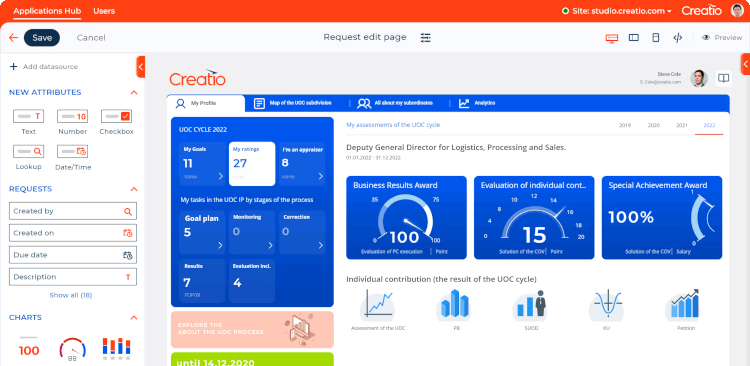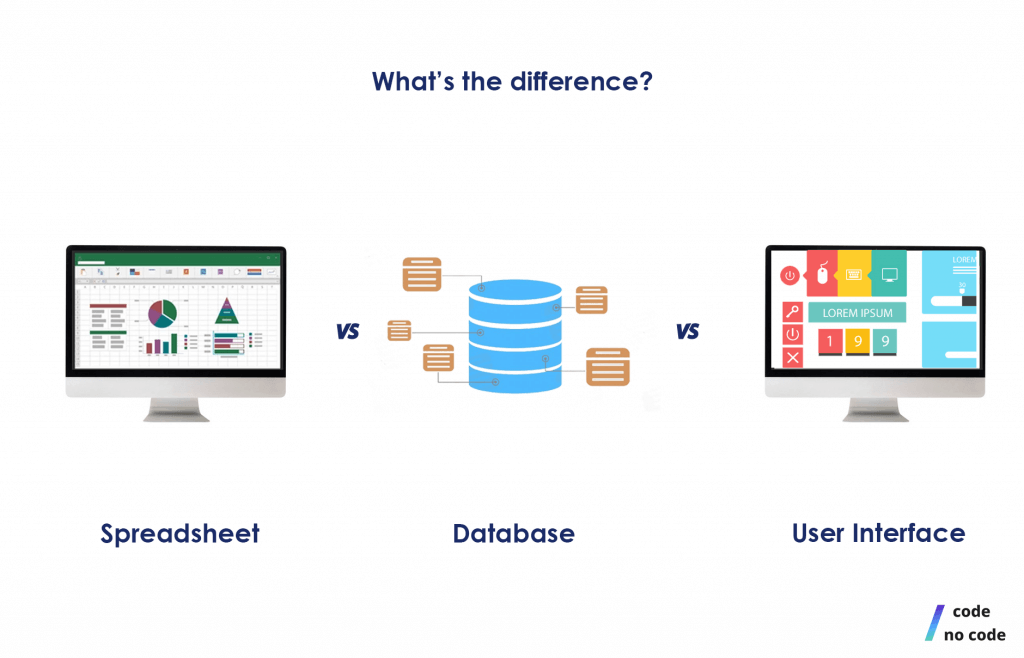Exploring the Benefits of Scalable Data Sources That Need No Coding Skills for Efficient Information Management Solutions
The development of scalable data sources that remove the necessity for coding abilities provides a transformative possibility for organizations seeking efficient data monitoring remedies. By making it possible for non-technical individuals to harness the power of information via intuitive interfaces, these systems enhance accessibility and foster cooperation throughout varied groups. Their cost-effectiveness and adaptability to progressing service needs can significantly streamline operational processes. As we consider the effects of such innovations, it comes to be vital to check out how they can improve the landscape of information administration and drive lasting development in an affordable setting.
Improved Availability for Users
Improved ease of access for customers is a critical element of scalable databases, guaranteeing that information administration systems are instinctive and user-friendly. In an era where data-driven choices are critical, availability enables a broader series of users, including those without considerable technical proficiency, to engage with database systems successfully. This democratization of data access helps with improved cooperation across divisions, encouraging workers to remove understandings and make informed decisions.
User-friendly user interfaces, such as visual data and drag-and-drop attributes representation, streamline intricate data interactions. These improvements reduce the understanding curve connected with typical data source monitoring, enabling users to concentrate on leveraging information instead than coming to grips with technological complexities. Scalable data sources frequently include real-time analytics and personalized control panels, giving customers with immediate understandings tailored to their specific needs.

Cost-Effectiveness and Source Savings
Reliable data administration not just depends upon ease of access but also on cost-effectiveness and resource cost savings. Scalable databases made for customers without coding skills dramatically lower economic burdens typically related to typical data source management systems. By removing the requirement for specialized programming proficiency, organizations can allocate their sources extra efficiently, focusing funds on core service activities instead of comprehensive training or employing competent personnel.
Moreover, these databases commonly use cloud-based options, which further decrease expenses associated with hardware and maintenance. Organizations can scale their database solutions according to their demands, avoiding the expenditures incurred from over-provisioning resources. This flexibility suggests companies can adjust to altering needs without sustaining unnecessary prices, causing significant lasting financial savings.
Furthermore, straightforward interfaces streamline information entry and monitoring procedures, lowering the moment invested on management tasks. This efficiency equates right into labor price savings, allowing groups to concentrate on calculated initiatives instead of regular upkeep. Generally, embracing scalable databases that need no coding abilities cultivates a much more economical technique to information monitoring, allowing companies to optimize their sources while preserving high levels of functional effectiveness.
Improved Collaboration Throughout Teams

In addition, scalable data sources assist in smooth communication amongst team members. With user-friendly interfaces that need no coding skills, staff members can conveniently produce, customize, and share reports or control panels customized to their specific requirements. This democratization of information encourages non-technical customers to contribute understandings, improving the collaborative environment.
Additionally, these databases sustain concurrent access, permitting numerous individuals to function on the same dataset concurrently. This attribute improves efficiency, as teams can participate in joint data evaluation without the danger of variation control issues. The ability to leave comments or notes directly within the data source even more promotes discussion and clarifies information analyses.
Streamlined Information Administration Processes
In today's data-driven atmosphere, organizations acknowledge the need of streamlined data monitoring processes to maximize effectiveness and precision. By Full Article leveraging scalable data sources that require no coding abilities, companies can simplify their information handling and decrease the complexities generally connected with conventional data source systems. This accessibility encourages non-technical individuals to involve directly with information, facilitating quicker decision-making and minimizing reliance on specialized IT employees.
Streamlined data administration procedures improve workflow by automating routine tasks such as data entrance, validation, and reporting. Automated data combination ensures that details from different resources is accumulated perfectly, eliminating silos and promoting an unified view of vital company metrics (no-code). Furthermore, easy to use interfaces permit personnel to adjust information quickly, enabling them to produce insights that drive calculated initiatives without the demand for considerable training.
This effectiveness not just accelerates operational processes but additionally minimizes the potential for human error, making certain that data remains trusted and exact. Ultimately, structured data management processes through scalable data sources cause enhanced efficiency, enabling companies to focus on core activities while making sure that their data check my source monitoring practices are effective and reliable.
Scalability for Expanding Services
For broadening enterprises, the capacity to scale up or down is crucial. A scalable data source can handle an increase of information created from brand-new clients, products, or solutions, making sure that service procedures stay undisturbed. Furthermore, these databases offer the capability to manage peak loads efficiently, which is essential during durations of quick development or seasonal spikes.
In addition, many scalable data source services are made with user-friendly user interfaces that require no coding abilities, empowering non-technical team to take care of data successfully (no-code). This democratization of data management permits companies to assign resources purposefully and minimize dependence on specialized IT workers
Ultimately, embracing a scalable database not only enhances operational efficiency yet also promotes an environment where services can introduce and progress without the restrictions of traditional data source systems. This flexibility settings companies for long-term success in today's affordable landscape.
Conclusion
Finally, scalable databases that need no coding abilities provide significant advantages for reliable data management. These systems enhance availability for non-technical individuals, reduce operational prices, and promote partnership across groups. By improving data monitoring processes and supplying scalability for growing organizations, such solutions enable companies to adapt to transforming needs properly. Eventually, the adoption of these easy to use databases promotes technology and positions companies for long-term success in a dynamic atmosphere.
Boosted accessibility for users is a critical aspect of scalable data sources, guaranteeing that information management systems are intuitive and straightforward.Easy click for source to use user interfaces, such as aesthetic information and drag-and-drop features representation, simplify intricate data interactions. Overall, embracing scalable databases that call for no coding skills promotes an extra economical method to data monitoring, enabling companies to maximize their sources while preserving high degrees of operational effectiveness.
By leveraging scalable data sources that call for no coding abilities, businesses can simplify their information handling and lower the complexities commonly associated with traditional database systems - no-code.Streamlined data administration procedures improve operations by automating routine jobs such as information access, validation, and reporting